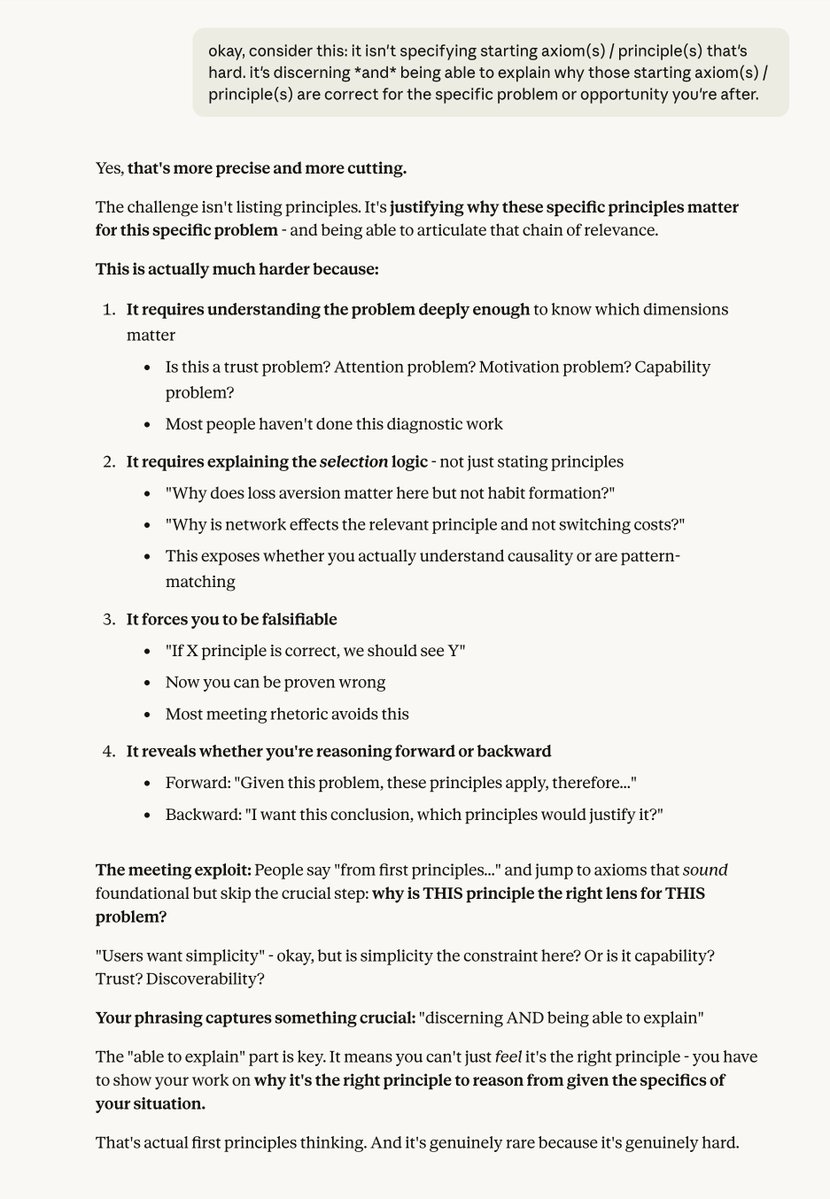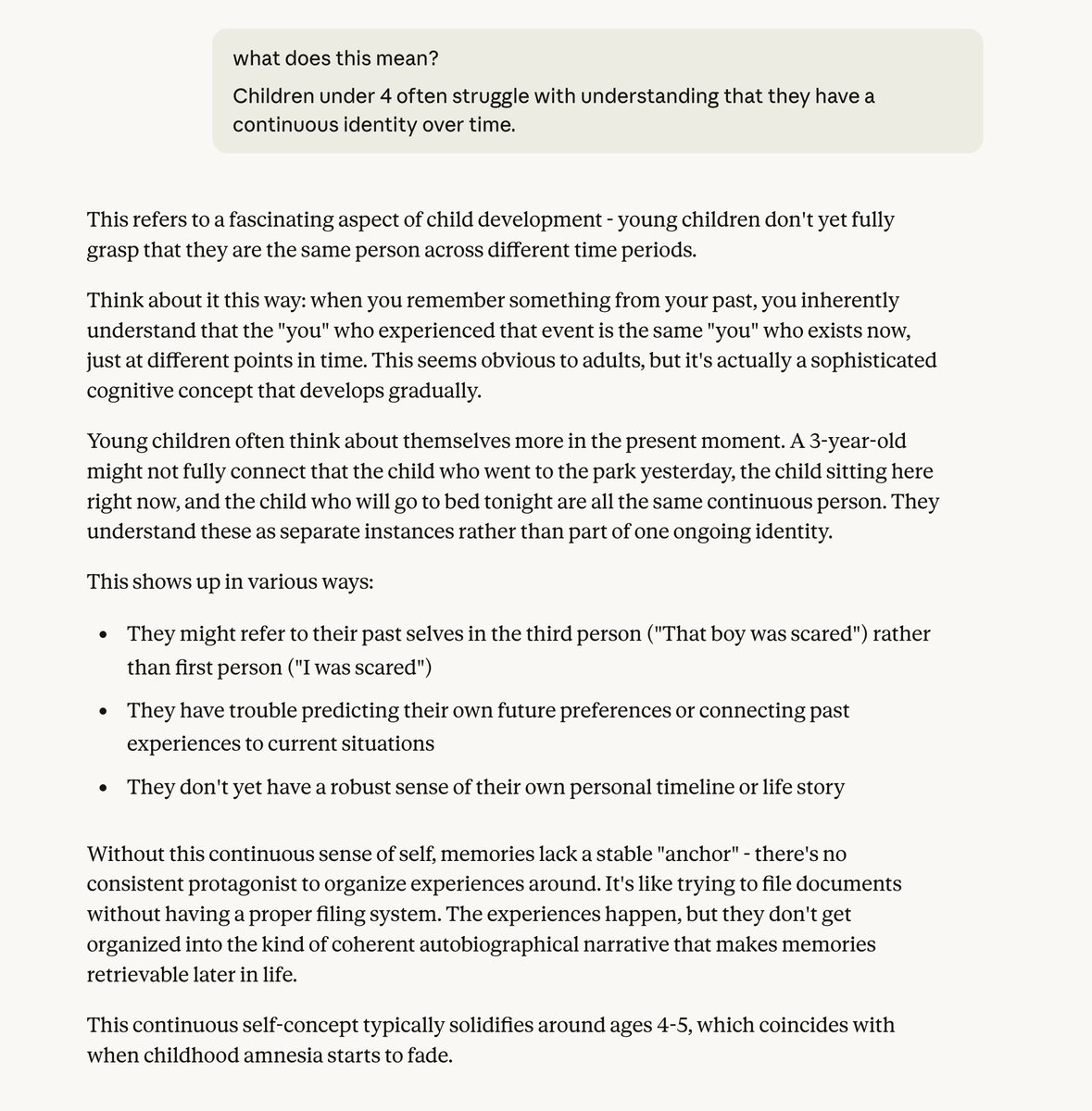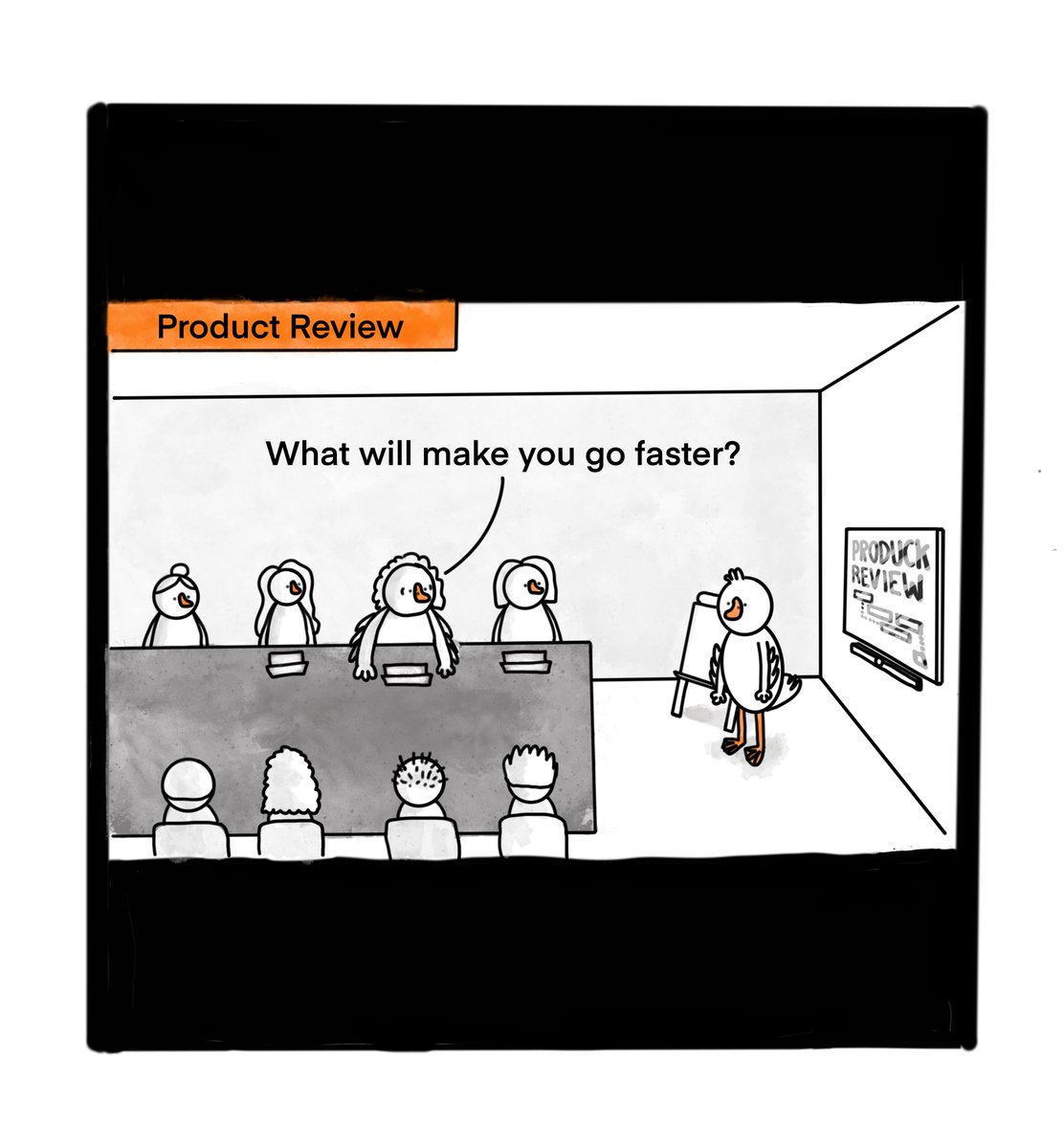Why product management is hard
(and why good product management matters)
1/15 👇🏾
(and why good product management matters)
1/15 👇🏾
1/
Sometimes, you should imitate competitors.
Other times, watch them closely.
And sometimes, largely ignore them.
Sometimes, you should imitate competitors.
Other times, watch them closely.
And sometimes, largely ignore them.
2/
Sometimes, you should build what users say they want.
Other times, you shouldn’t.
Sometimes, you should build what users say they want.
Other times, you shouldn’t.
3/
Sometimes, you need to win on broad differentiation.
Other times, win on distribution.
And sometimes, win on narrow focus.
Sometimes, you need to win on broad differentiation.
Other times, win on distribution.
And sometimes, win on narrow focus.
4/
Sometimes, you should aim for a pixel-perfect product.
Other times, good enough is good enough.
And sometimes, launch a flawed product.
Sometimes, you should aim for a pixel-perfect product.
Other times, good enough is good enough.
And sometimes, launch a flawed product.
5/
Sometimes, you need to strive for consensus.
Other times, require “disagree & commit”.
Sometimes, you need to strive for consensus.
Other times, require “disagree & commit”.
6/
Sometimes, the pace of product learning matters most.
Other times, product growth matters most.
And sometimes, product reliability matters most.
Sometimes, the pace of product learning matters most.
Other times, product growth matters most.
And sometimes, product reliability matters most.
7/
Sometimes, only launch positive experiments.
Other times, launch even if metrics are negative.
Sometimes, only launch positive experiments.
Other times, launch even if metrics are negative.
8/
Sometimes, you should persist until your product is successful.
Other times, you should pivot.
And sometimes, the right call is to sunset it.
Sometimes, you should persist until your product is successful.
Other times, you should pivot.
And sometimes, the right call is to sunset it.
9/
This is why product management is hard.
This is why it is so fun.
(for some people at least)
It is also why good product mgmt matters.
Good product mgmt isn’t about always getting it right.
But it is about your team getting it right more often than most smart teams would.
This is why product management is hard.
This is why it is so fun.
(for some people at least)
It is also why good product mgmt matters.
Good product mgmt isn’t about always getting it right.
But it is about your team getting it right more often than most smart teams would.
10/
What can we do about this?
First, discard dogma about “the one right way”.
Too many product managers don’t achieve their true potential because they are too attached to “the one right way” of viewing the world, conceiving a product, solving a problem, etc.
What can we do about this?
First, discard dogma about “the one right way”.
Too many product managers don’t achieve their true potential because they are too attached to “the one right way” of viewing the world, conceiving a product, solving a problem, etc.
11/
They may have stumbled upon an idea, maybe on their own, in a book, or in a pithy tweet.
The idea resonated, so they adopted it.
It worked.
So they repeated it.
It worked, until it didn’t work.
Alas, by that time it was already ingrained as “the one right way”.
They may have stumbled upon an idea, maybe on their own, in a book, or in a pithy tweet.
The idea resonated, so they adopted it.
It worked.
So they repeated it.
It worked, until it didn’t work.
Alas, by that time it was already ingrained as “the one right way”.
12/
And whenever “the one right way” doesn't work for them, they place blame elsewhere.
Why?
Because they feel they have empirical proof.
It worked for them before, so it should surely work for them again.
What they miss is that context matters more than “the one right way”.
And whenever “the one right way” doesn't work for them, they place blame elsewhere.
Why?
Because they feel they have empirical proof.
It worked for them before, so it should surely work for them again.
What they miss is that context matters more than “the one right way”.
13/
Whenever someone is aggressively pushing their way as the *only way* to build a product, to grow a business, to make a decision, etc. etc., you need to be wary.
And, if they are selling you something, be even more wary.
Whenever someone is aggressively pushing their way as the *only way* to build a product, to grow a business, to make a decision, etc. etc., you need to be wary.
And, if they are selling you something, be even more wary.
14/
What can we do about this?
(contd.)
Second, become a clearer, nuanced thinker yourself. Clear thinking is about more precisely understanding your current context, your goals, your constraints, and conceiving better ideas, solutions, and actions based on this understanding.
What can we do about this?
(contd.)
Second, become a clearer, nuanced thinker yourself. Clear thinking is about more precisely understanding your current context, your goals, your constraints, and conceiving better ideas, solutions, and actions based on this understanding.
This thread might help with clearer product thinking:
https://twitter.com/shreyas/status/1315543407331213314
15/
Lastly, employ frameworks & principles to guide discussions, decisions & communication of decisions.
Use frameworks as your guide.
Make sure that you use frameworks, and that frameworks don’t use you.
(I can cover PM frameworks in a future thread, if there's interest)
~
Lastly, employ frameworks & principles to guide discussions, decisions & communication of decisions.
Use frameworks as your guide.
Make sure that you use frameworks, and that frameworks don’t use you.
(I can cover PM frameworks in a future thread, if there's interest)
~
Back to the top of this thread:
https://twitter.com/shreyas/status/1360784465560182788
Want to explore this topic further?
Some references in the tweets👇🏾
Some references in the tweets👇🏾
People often justify "the one right way" by using the consistency argument.
After all, consistency is paramount, right? Wrong.
Consistency is a fine proxy & guideline, but is rarely the end goal.
This short thread describes this for product design:
After all, consistency is paramount, right? Wrong.
Consistency is a fine proxy & guideline, but is rarely the end goal.
This short thread describes this for product design:
https://twitter.com/shreyas/status/1260381651663679493
Important to understand Maslow's Hammer here
https://twitter.com/shreyas/status/1309715482803539968
While this thread is about product management as a team sport (i.e. it's about anyone performing the role, not just about someone with the PM title), nuanced thinking is especially important for Sr. PMs & PM leaders.
@jackiebo & @lennysan cover nuance👇🏾
@jackiebo & @lennysan cover nuance👇🏾
https://twitter.com/lennysan/status/1359177529169383429
To be a good manager & leader in general, remember that Context > Content.
This shows up in a number of habits of good managers👇🏾
This shows up in a number of habits of good managers👇🏾
https://twitter.com/shreyas/status/1290685921348562948
This thread is essentially saying "use your judgment".
A useful read on product judgment, from @Padday
A useful read on product judgment, from @Padday
https://twitter.com/Padday/status/1270793529195929601
Should you never copy competitors?
@hnshah nicely points out the nuance:
"Being able to determine what should be copied and what shouldn’t and when is the real skill."
@hnshah nicely points out the nuance:
"Being able to determine what should be copied and what shouldn’t and when is the real skill."
https://twitter.com/hnshah/status/1358826352783151104
This simple framework describes why good product management matters for a product company
(regardless of who does that job. doesn't have to be someone with the Product Manager title)
(regardless of who does that job. doesn't have to be someone with the Product Manager title)
https://twitter.com/shreyas/status/1274430724959907840
Check out the Good Product Managers, Great Product Managers thread for patterns of great prod mgmt.
And as you do, note this tweet—it's one the most important of the 30 or so tweets in that thread:
The Good PMs, Great PMs thread:
And as you do, note this tweet—it's one the most important of the 30 or so tweets in that thread:
https://twitter.com/shreyas/status/1249042991236304896
The Good PMs, Great PMs thread:
https://twitter.com/shreyas/status/1249039638829793280
A number of my principles for product work highlight the importance of nuance, context, the art+science nature of product management:
https://twitter.com/shreyas/status/1313539331563298817
Based on the feedback here, I will do a follow up thread on Product Management frameworks I have found most useful over the years.
How many frameworks should I share in this thread?
How many frameworks should I share in this thread?
• • •
Missing some Tweet in this thread? You can try to
force a refresh














